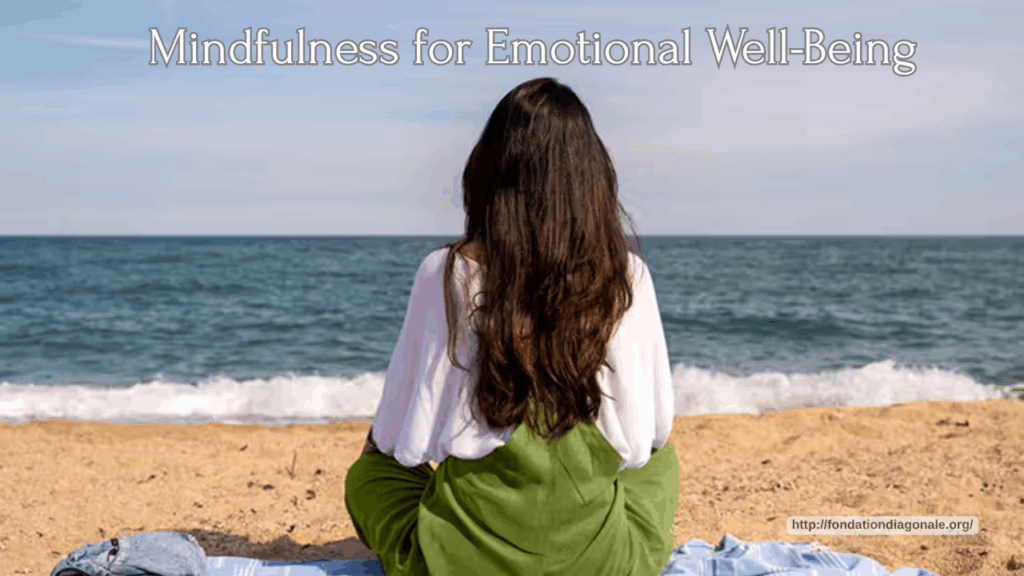Fresh Eyes, Open Heart: Post-Recovery Mindfulness for Emotional Well-Being
posted by: Guest
No Comments »

Recovery is a courageous step—a commitment to healing, growth, and rediscovering life with clarity and compassion. Yet, once the initial stages of addiction treatment are complete, many individuals face a new challenge: learning how to live with awareness and emotional balance in everyday life. This is where mindfulness becomes a powerful ally. By cultivating presence, patience, and gratitude, mindfulness helps individuals not only stay grounded in recovery but also reconnect with themselves and the world around them with fresh eyes and an open heart.
The Role of Mindfulness in Emotional Healing
At Fondation Diagonale, recovery is understood as a holistic journey that involves mind, body, and spirit. Beyond clinical treatment, emotional healing requires nurturing the inner self and building habits that foster peace and resilience. Mindfulness—the practice of being fully present without judgment—supports this process by helping individuals respond to emotions with compassion rather than reaction.
In addiction recovery, emotions often run deep. Feelings of guilt, shame, anxiety, or fear may surface long after detox or counseling. Mindfulness provides tools to face these emotions without becoming overwhelmed. Through consistent practice, individuals learn to notice their feelings, breathe through discomfort, and choose healthy responses that align with long-term wellness.
Simple Mindfulness Practices for Everyday Balance
1. Begin the Day with Intention
Start your morning with a moment of stillness. Before reaching for your phone or rushing into your to-do list, take three deep breaths and set a simple intention. Whether it’s “I will be kind to myself today” or “I will stay present,” this small practice centers your mind and sets a positive tone for the day.
2. Tune Into Your Emotions Throughout the Day
Emotional awareness is key to sustained recovery. Pause several times a day to ask yourself, “What am I feeling right now?” Naming your emotions—without labeling them as good or bad—helps you understand your inner world and prevents impulsive reactions.
3. Practice Gratitude Before Bed
End the day by reflecting on moments of gratitude. Write down three things that brought you peace or joy. Gratitude shifts the focus from what is missing to what is meaningful, fostering emotional balance and strengthening resilience.
4. Connect with Nature
Time spent outdoors has a grounding effect on the mind. Whether it’s a quiet walk, sitting under a tree, or watching the sunset, nature helps you slow down and reconnect with the present moment. It also reminds you of the beauty and simplicity that often go unnoticed in daily life.
Building Emotional Strength Through Awareness
Mindfulness is not about avoiding difficult emotions but learning to meet them with courage and understanding. Over time, this awareness builds emotional intelligence, helping individuals recognize patterns and triggers before they become overwhelming. It also cultivates self-compassion—a vital component of long-term recovery.
Through mindful living, people in recovery begin to replace old habits of avoidance or self-criticism with curiosity and acceptance. This shift strengthens emotional well-being and opens the heart to deeper connection and fulfillment.
Living with Presence and Purpose
Post-recovery life is a chance to rediscover joy, meaning, and connection. By integrating mindfulness into everyday routines, individuals can transform their relationship with themselves and the world around them.
At Fondation Diagonale, compassionate and individualized care supports every stage of this transformation. Whether through inpatient programs, outpatient therapy, or holistic counseling, the goal is to empower individuals to heal fully—body, mind, and spirit.
If you or someone you love is seeking lasting recovery and emotional renewal, reach out to Fondation Diagonale today. A mindful, purposeful life is within reach. All it takes is a willingness to pause, breathe, and open your heart to the present moment.